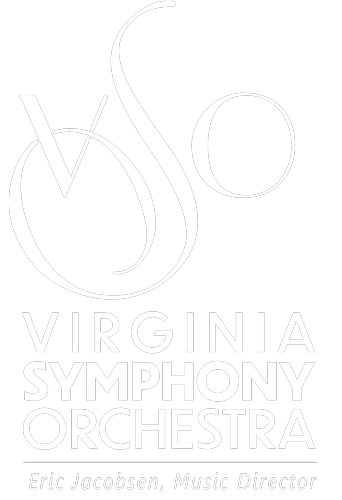Classical iconoclast Cameron Carpenter brings his unique organ to play with the Virginia Symphony Orchestra
March 10, 2016
Talk to Cameron Carpenter about the organ, and the conversation is not limited to music. In discussing the fundamental nature of his instrument and what it means to choose to play it, he invokes history, psychology and even political philosophy.
So perhaps it is not surprising that what initially drew him to the organ was not its sound, but rather its look and, later, its feel. At age 4 he saw an image of a pipe organ for the first time, in an encyclopedia, and his imagination was sparked by its elaborate mechanism.
And the first time he played it …
“The immediate impression I always remember wasn’t something I could have put into words then, but the sensation is one of touching time,” Carpenter says. “The organ is the only instrument that can sustain a tone indefinitely. With most instruments, anything influenced by the human body, the sound created will tend to die away. The organ does not do that.
“It’s like dropping a needle on an advance record of past events that occur as you generate them. It has a very different relationship to time than any other instrument. It’s as though all of time, all of experience, is at your disposal.”
Carpenter, whose Mohawk haircut and punk aesthetic have simultaneously energized and offended lovers of classical music, is performing for the first time with the Virginia Symphony Orchestra. He is at the L. Douglas Wilder Performing Arts Center in Norfolk on Saturday, at the Sandler Center in Virginia Beach on Sunday and at the Ferguson Center in Newport News on Monday, doing a program of French classical pieces highlighted by Saint-Saens’ Symphony No. 3.
Music director JoAnn Falletta, who will conduct the shows, says the symphony has been trying to schedule a date with Carpenter for a few years now. She knows that not all symphony fans are drawn to Carpenter’s style, so she took the step of adding a more traditional work by Bach as a nod to the most ardent purists.
Carpenter is the first organist to sit in as a guest soloist with the Virginia Symphony Orchestra since Anthony Newman in 2002.
“His whole persona is a way of attracting attention to the organ as a thrilling, exciting instrument,” Falletta says. “The first time I saw a photo of him playing it I thought he was onto something. He’s attention-getting, and people want to see what he’s about. I saw one very respected reviewer who wrote, ‘I don’t care for his hair or his clothes or his manner, but he is an absolute force of nature on the organ.'”
Carpenter, 34, has grown accustomed, and perhaps wearied, of descriptions of him as “the bad boy of classical music.” He acknowledges that he is an outsider. He is an atheist who chose to devote his career to playing an instrument most closely associated with churches.
But he presents himself in a way that comes naturally to him, not in an attempt to market himself as a rebel.
“I’m against orthodoxy, against government, against religious beliefs,” he says. “My punk hairstyle is quite appropriate and in line with those ethics. I don’t consider myself a punk, but it’s not hard to see that my sympathies lie there.”
He arrives in Hampton Roads with his International Touring Organ, a glorious and completely portable instrument with five keyboards and a pedalboard at his feet. It required a decade of planning, more than a year of construction, and it is the only one in the whole world.
Where most pipe organs are built into the architecture of their churches or halls, this one can be deconstructed, transported by truck, and reassembled in 90 minutes by a half-dozen or so stagehands. It has two sound systems, one stored in Berlin for transport to European dates and the other stored in Boston for use in North America.
This allows Carpenter the critical advantage of playing the same instrument at each performance — a given for a violinist or a cellist, but almost impossible for an organist.
Previous organ virtuosos have successfully designed portable instruments — Reginald Foort in the 1930s and Virgil Fox in the ’70s — but neither produced the clarity of sound achieved by Carpenter’s digital ITO, which he premiered in March 2014 at Lincoln Center in New York.
“In order to be competitive musically, an organist has to have his own instrument,” Carpenter says. “This is a crucial fact. Each organ is intrinsically unique. There is no standardization; infrastructurally, it can’t exist. So if you’re talking about competitive music-making on a globally branded scale, that leaves the organist out of the equation.
“(Before the ITO), I played extensively on the pipe organ and I achieved what I view as the maximum one can do with a pipe organ. None of that is terribly satisfying to me. The International Touring Organ, and the emergence of this technology, has without question saved me as a musician. I would not have been able to continue in this situation, trying to marry these ambitions to the pipe organ. It’s not doable, and I’m sorry to say that a lot of my colleagues prove that.”
Some traditionalists within classical music have been unimpressed. David Di Fiore, a prominent organist and teacher, told the technology publication The Verge: “I do not take kindly to individuals who trash some of the very greatest instruments of the world in favor of, shall we say, inferior products.”
But Carpenter seems unaffected by the criticisms of purists.
In fact, he believes classical music as a whole is in its final days as a mainstream entertainment form.
“I want classical music to continue, but its end is inevitable,” he says. “It will never entirely disappear, but then, neither did the language of Latin. That’s what classical music will be in 20 or 25 years — the realm of the super-elite will use it as a status symbol. It will be an academic pursuit, more about musicology and history. But most orchestras will be out of business. That’s an obvious reality.
“I have the anecdotal sense that this belief is shared by other musicians of my generation and younger. I certainly remember at Juilliard that none of my friends listened to classical music for enjoyment. That doesn’t necessarily prove the thesis, but I think it’s a little more than circumstantial.”
As for himself, he says he prefers hip-hop. He calls it “the most evolved form of music we have,” an evocation of cultural change and social struggle.
When he describes himself as “one of the last gatekeepers in the era of classical music as public entertainment,” there is no hint of sadness or resignation in his voice. It is hard for many people to accept, he says, but he looks at this like a career as any other.
“I find as I approach my mid-30s that classical music plays the same part in my life that flying plays in the life of a pilot,” he says. “They love to do it, and their ambition to do it drove them, but outside of work it doesn’t play a large role. For scientists, their work is something they can leave in the lab and return to, and when they return they do so with utter devotion. And I don’t think there is any question of the completeness of my genuine devotion to music.”
Carpenter says he recognized the impending fate of classical music even before he hit his teens, but that he was driven by an obsession (“not a love, but an obsession”) with the mathematical precision of his instrument.
Did it ever cross his mind, perhaps as a rebellious teen or twentysomething, that perhaps he should consider a different musical form that he perceived had a longer future ahead?
He chuckles.
“Oh, it crosses my mind every day,” he says. “But the language the organ speaks is a bridge between the digital world and the world of emotion. It’sthat that I’m obsessed with, and the obsession couldn’t give a damn if I have anything to eat.
“The fact that classical music is disappearing as a cultural force makes life harder and increases that sense of ‘otherness,’ but it has not the slightest effect on my commitment. In that sense, I have to be regarded as insane. I have to be regarded as certifiable. With some justification.”
Holtzclaw can be reached by phone at 757-928-6479.
Info: 757-892-6366 or virginiasymphony.org.
Want to go?
What: Organist Cameron Carpenter playing with the Virginia Symphony Orchestra.
When and where: 8 p.m. Saturday at the L. Douglas Wilder Performing Arts Center in Norfolk; 2:30 p.m. Sunday at the Sandler Center in Virginia Beach, and 7:30 p.m. Monday at the Ferguson Center in Newport News.
Program: Le Corsaine (Berlioz), Concerto in G minor for Organ, Timpani and Strings (Francis Poulenc), Passacaglia and Fugue in C minor (Bach), Symphony No. 3 in C minor, Op. 78 (Sainte-Saens).
Tickets: $25.


















































